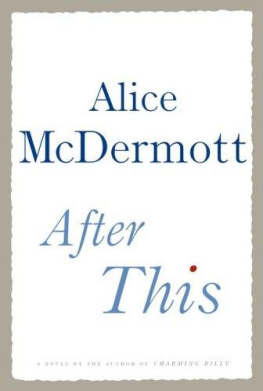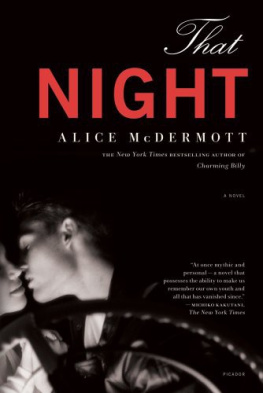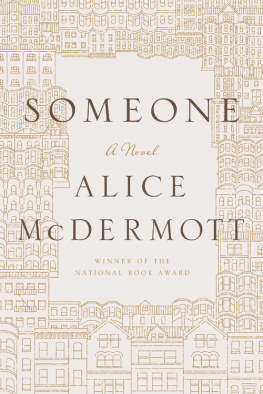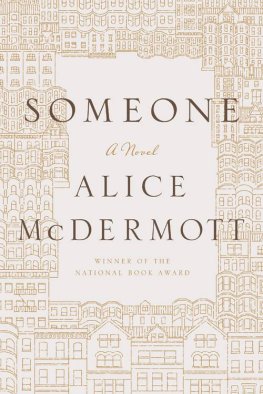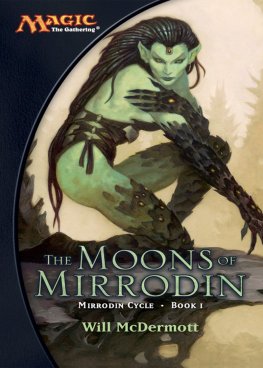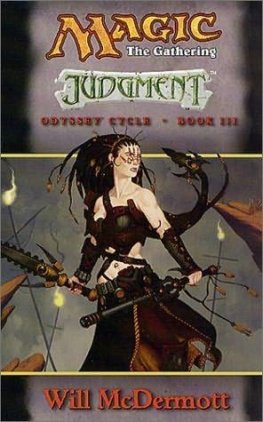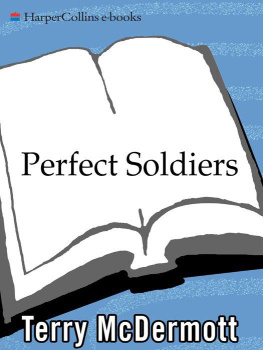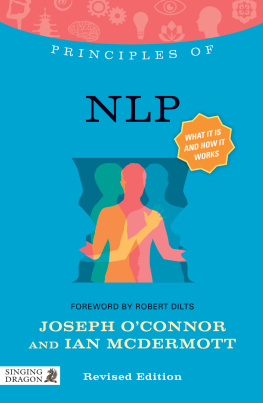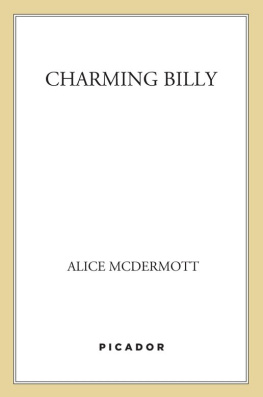Alice McDermott - After This
Here you can read online Alice McDermott - After This full text of the book (entire story) in english for free. Download pdf and epub, get meaning, cover and reviews about this ebook. year: 2006, publisher: Farrar, Straus and Giroux, genre: Computer. Description of the work, (preface) as well as reviews are available. Best literature library LitArk.com created for fans of good reading and offers a wide selection of genres:
Romance novel
Science fiction
Adventure
Detective
Science
History
Home and family
Prose
Art
Politics
Computer
Non-fiction
Religion
Business
Children
Humor
Choose a favorite category and find really read worthwhile books. Enjoy immersion in the world of imagination, feel the emotions of the characters or learn something new for yourself, make an fascinating discovery.
- Book:After This
- Author:
- Publisher:Farrar, Straus and Giroux
- Genre:
- Year:2006
- Rating:5 / 5
- Favourites:Add to favourites
- Your mark:
- 100
- 1
- 2
- 3
- 4
- 5
After This: summary, description and annotation
We offer to read an annotation, description, summary or preface (depends on what the author of the book "After This" wrote himself). If you haven't found the necessary information about the book — write in the comments, we will try to find it.
After This — read online for free the complete book (whole text) full work
Below is the text of the book, divided by pages. System saving the place of the last page read, allows you to conveniently read the book "After This" online for free, without having to search again every time where you left off. Put a bookmark, and you can go to the page where you finished reading at any time.
Font size:
Interval:
Bookmark:
Farrar, Straus and Giroux New York
Farrar, Straus and Giroux19 Union Square West, New York 10003Copyright 2006 by Alice McDermottAll rights reservedDistributed in Canada by Douglas & Mclntyre Ltd.Printed in the United States of AmericaFirst edition, 2006
Library of Congress Cataloging-in-Publication DataMcDermott, Alice.After this / Alice McDermott.1st ed.p. cm.ISBN-13: 978-0-374-16809-4 (hardcover: alk. paper)ISBN-10: 0-374-16809-1 (hardcover)1. United StatesSocial life and customs20th centuryFiction. 2. Domestic fiction. I. Title.PS3563. C355A68 2006813'. 54 dc22 2006005598Designed by Abby Kaganwww.fsgbooks.com 1 3 5 7 9 10 8 6 4 2 For Mildred After ThisIL EAVING THE CHURCH , she felt the wind rise, felt the pinprick of pebble and grit against her stockings and her cheeksthe slivered shards of mad sunlight in her eyes. She paused, still on the granite steps, touched the brim of her hat and the flying hem of her skirtfelt the wind rush up her cuffs and rattle her sleeves.And all before her, the lunch-hour crowd bent under the April sun and into the bitter April wind, jackets flapping and eyes squinting, orelse skirts pressed to the backs of legs and jacket hems pressed to bottoms. And trailing them, outrunning them, skittering along the gutter and the sidewalk and the low gray steps of the church, banging into ankles and knees and one another, scraps of paper, newspapers, candy wrappers, what else?office memos? shopping lists? The paperdetritus that she had somewhere read, or had heard it said, trails armies, or was it (she had seen a photograph) the scraps of letters and wrappers and snapshots that blow across battlefields after all but the dead have fled?
She squinted against the sunlight on taxi hoods and bus windows, heard the rushing now of air and of taxis, wheezing buses, and underneath it all something banginga loosened street sign, a trapped can, a distant hammerrhythmic and methodical. The march of time.
And then George approaching, his hand stuck to his hat and the hat bent into the onslaught. She went down the steps just in front ofhim, drawn more by forward momentum than by any desire to meet up with, or to avoid, her brothers latest best pal.
The cold wind made it difficult to breathe, as if it could snatch your next breath before you had time to swallow it, and she bent herhead, too, hand to her hat, submerged in wind and beginning to imagine herself slowly losing ground with each step forward, slowlybeginning to stall, and then to sail backwarda quick scramble toregain ground and then another sailing backward. In church she hadprayed for contentment. She was thirty, with no husband in sight. Agood job, an aging father, a bachelor brother, a few nice friends. Atleast, she had askedso humbly, so earnestly, so seriouslylet me becontent.
And now a slapstick windstorm fit for Harold Lloyd or Buster Keaton.
It was either Gods reply or just April again, in the wind tunnel that was midtown Manhattan. The scent of it, the Easter scent of April in the city, all around her, in the cold air itself as well as on the shoulders of the crowd; the smell of sunlight and dirt, something warming at the heart of it all.And then she felt his hand on her shoulder and he shouted,Mary Rose, which bound him forever to her brother and her father and her life at home since nowhere else did she tolerate the doublename. His head was still lowered, his hand still on his hathe might have been waiting for the right opportunity to doff itand he peered around at her from under its brim as if from under the rock of anotherlife.And she, her hand on the back of her own hat, did the same.Hello, George, she said. She could feel the crunch of city grit between her back teeth.Some wind, he said. He had one eye closed against it, the other was watery.Youre-telling me, she said.They walked together to the corner and as they stepped off thecurb, he suddenly reached up and took her raised elbowthe one that led to the hand she held against her hatand kept it between his fingers as they crossed. She thought he must look like a man attached to a subway strap. At the next corner, he did the same; a gesture that was either brotherly or proprietary, but awkward either way, as if one of them were blind or doddering, or as if both were involved in someodd, raised-elbow folk dance. At Forty-sixth, the light was against them and the wind paused enough for her to take her hand off her hat while they waited with the crowd.She turned to himwas he going to speak? His eyes were teary from the wind, red-rimmed and bloodshot. His nose was running andthere were tears on his windblown cheeks. She clicked open the purse that hung on her arm and found her handkerchief, but he refused it, reaching into his overcoat for his own. He mopped his face and blew his nose before the crowd got them moving again and as they got to the curb, she placed her left hand on her hat so he could reach herelbow at a more convenient anglewhich he did, guiding her across the street as if she were a novice pedestrian, and this time, perhaps, putting a little more pressure behind the fingertips that held her.Where are you headed, George? she asked him. He shouted something unintelligible into the wind.Have you eaten yet? she asked, because it was only polite. And then the wind paused completely, as it will in April, a sudden silenceand maybe even the hint of warmth from the sun, so that he replied with odd gentleness, Yeah, I had my lunch.They were at the door of the restaurant. The wind was picking up again. Would you like some coffee? she asked.He shook his head and she could not deny her own relief. Im out of time, he said. And then added, What about dinner?Lamb chops, she told him. You coming over? Anticipating already a stop at the butchers to pick up two or three more.He shook his head. There was another tear streaming down his windblown cheek and as he replied she lifted the handkerchief in her hand and wiped it away, feeling the not unpleasant pull of his beard against the thin cotton.He said, I mean, what about us having dinner?The wind puffed up again and they both put their hands to theirhats. Where? she said, rudely, she realized later. But it was likehaving a passing stranger suddenly turn to sing you an aria. Anyonewould have a second or two of not quite knowing what was really going on.Out, he told her. He was a broad-faced man who looked good inhats. Who looked better now than he did at home, where he had been thus far only the unremarkable source of her brother Jimmysunpredictable enthusiasms. At a restaurant, he said. And then to make himself clearer, The two of us.Tonight? she said, and then they both turned away for a moment from the peppered wind. When they turned back, he said, Why not? but without conviction, confirming for them both that this was a sudden impulse that most likely would not last out theafternoon. What if I come by at seven? he said.She paused, squinting, not for the chance to see him better but for him to see her. Ill have to cook those lamb chops anyway, shesaid. Or else Jimmy and my father will be gnawing the table legs by the time I get home.He smiled a little, unable to disguise what she was sure was a bit of confusion about his own impulse. He said again, Ill come by at seven, and then turned back into the wind.She pushed open the door to the restaurant. More lunchtime bustle, mostly women in hats with their coats thrown over the backs of chairs, the satiny linings and the fur collars and cuffs, the perfume and the elegant curves of the womens backs as they leaned forward across the small tables, all giving the hint of a boudoir to the busy place. She found a seat at the counter, wiggled her way into it. Saw the man beside her who was finishing a cigarette give her a quick up and down from over his shoulder and then turn back to flick an ash onto the remains of his sandwich. She imagined returning his dismissive stare, and then maybe even letting her eyes linger distastefully on the crust of bread and the bitten dill pickle and thecigarette debris on his plate. She could slide the ashtray that was rightthere between them a little closer to his elbowhint, hint. Emboldened, perhapswas she?by the fact that shed just been asked out on a date.She ordered a sandwich from the waitress, whose pretty youth was still evident in the doughy folds of her weary and aging face, and a cup of tea. And then she held her hands over the steaming water for afew seconds. Thin hands, long fingers, with a kind of transparency to the chapped skin. Her mothers gold ring, inset with a silverMiraculous Medal, on her right hand. The man beside her rubbed his cigarette into the plate, then stood, swinging away from her on thestool and causing a slight ripple through the customers all along the other side of him. He took his overcoat from the hat rack and put it onstanding just behind her, and then leaned across his empty stool,brushing her arm, to leave a few coins under his plate.Overcoats in April, he said. Some crazy weather.She turned to him, out of politeness, the habit of it. Ive never seen such wind, she said.He was handsome enoughdark eyes and a nice chin, though his hair was thinning. He wore a dark overcoat and a dark suit, a whiteshirt and a tie, and there was the worn shine of a brass belt buckle as he reached for his wallet. Reminds me of some days we had overseas, he said, taking a bill from his billfold.She frowned, reflexively. Where were you?He shook his head, smiled at her. Something in his mannerseemed to indicate that they knew each other, that theyd had suchconversations before. In another life, he said and snapped the bill and slapped the wallet and returned it to his pocket with a wink that said, But all thats behind us now, isnt it? He was thin and his stomach was taut and his starched white shirt was smooth against his chest and belly. The brass belt buckle, marked with decorative lines, a circled initial at its center, was worn to a warm gold. Once more into the breach, he said, turning up his collar. Wish me luck.For an odd second, she thought he might lean down and kiss her cheek.Good luck, she said. Over her shoulder, she watched him walk away. A slight limp, a favoring, perhaps, of his left leg. A flaw that would, she knew, diminish him in some womens eyes. Even if hed been wounded in the war, there would be, she knew, for some women, the diminished appeal of a man who had suffered something over which hed had no control. Who had suffered disappointment.She turned back to her sandwich. And here, of all things, was desire again. (She could have put the palm of her hand to the front ofhis white shirt.) Here was her chicken sandwich and her tea and the waitress with a hard life in her eyes and a pretty face disappearing into pale flesh asking if theres anything else for now, dear. Here was theboudoir air of respectable Schraffts with its marble counters and pretty lamps and lunchtime bustle (ten minutes until she should beback at her desk), perfume and smoke, with the war over and another life begun and mad April whipping through the streets again. And here she was at thirty, just out of church (a candle lit every lunch hour, still, although the war was over), and yearning now with every inch ofherself to put her hand to theworn buckle at a strangers waist, a palm to his smooth belly. A man shed never see again. Good luck.She sipped her tea. Once, ten years ago, at a Sunday-afternoon party in some apartment that she remembered now as beinglabyrinthine, although it probably had only four bedrooms, as opposed to the place she shared with her brother and her father that had two, Mike Shea had seized her by the wrist and pulled her into a dim room and plastered his mouth against hers before she could catch her breath. She had known him since high school, he was part of the crowd she went with then, and he had kissed her once or twicebeforeshe remembered specifically the train station at Fishkill, on a snowy night when they were all coming back from a sledding partybut this was passionate and desperate, he was very drunk, and roughenough to make her push him off if he had not, in the first moment she had come up for air, gently taken off his glasses and placed them on a doilied dresser beside them, and then, in what seemed the same movement, reached behind her to lock the door. It was the odd, drunken gentleness of it, not to mention the snapping hint of dangerfrom the lock, that changed her mind. And after two or three rebukes when he tried to get at the buttons that ran up the back of her dress, she thought, Why not, and although her acquiescence seemed to slowhim down a bit, as if he was uncertain of the next step, she was enjoying herself enough by then to undo the last button without prompting and then to pull her bare shoulder and arm up out of thedressfirst one then the otherand to pull dress and slip (she didnt wear a bra, no need) down to her waist in a single gesture. And thenwas it just the pleasure of the material against her bare flesh, his shirt front, her wool?she slowly pushed dress and slip and garter belt and stockings down over her narrow hips until they fell to her feet. And then she stepped out of her shoes. (Even the shoes? the priest had whispered in the confes-sional the following Saturday, as if it was more than he could bear, orimagineas if, she thought later, he was ready to send her to perdition or ask her for a date.)The banging at the door was his excuse to turn awaysome people had their coats in thereand while he stood with his back to her she dressed again and unlocked the door and walked out. Shesmiled at the taunts and jeers of her friends and when someone asked, Wheres Mike? she said, I think I killed him, which got a greatlaugh.Mike Shea became a medic during the war and was now married, working for Pfizer. To this day he cant look at her straight. To this dayshe cant quite convince herself that the sin was as grave as it seemed.(She thought, in fact, of telling the priest as he whispered his furious admonitions that she weighed barely a hundred pounds and was as thin as a boy and if he would adjust his imagination accordingly and see the buds of her breasts and her flat stomach and the bony points of her hips, he would understand that even buck naked, her body was not made for mortal sin.)She cant quite convince herself, these ten years later, that anything at all like it will happen to her again.She finished her sandwich, gave an extra quarter to the waitress, who also wore no wedding band, and headed back into the breach. Next pageFont size:
Interval:
Bookmark:
Similar books «After This»
Look at similar books to After This. We have selected literature similar in name and meaning in the hope of providing readers with more options to find new, interesting, not yet read works.
Discussion, reviews of the book After This and just readers' own opinions. Leave your comments, write what you think about the work, its meaning or the main characters. Specify what exactly you liked and what you didn't like, and why you think so.

